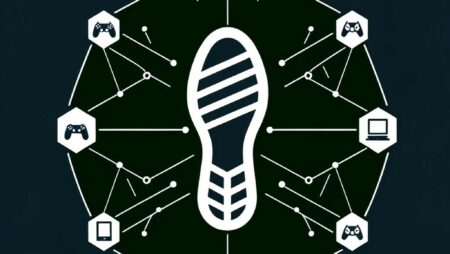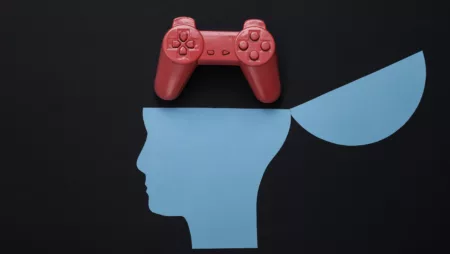
Programme on Adolescent Well-Being in the Digital Age
This programme addresses the assumptions that the overall mental well-being of young people is undergoing a pronounced period of decline and that digital technologies might be driving this trend.
Andrew K. Przybylski is the Professor of Human Behaviour and Technology at the University of Oxford. Professor Przybylski investigates how online social media and video games platforms shape human motivation and influence the health and well-being of their users.
Professor Przybylski has published more than 100 peer reviewed academic and conference papers which have been cited more than 20,000 times in the past decade. He is a frequent commentator on the effects of internet-based technology on our lives and works closely with national and global policymakers to empower users and independent scientists to address the most pressing questions of health and human development in the digital age.
Professor Przybylski’s research, commentary, and contributions are regularly featured in The Guardian, The New York Times, Wired Magazine, The Washington Post, The Financial Times, The Week, and international outlets including the BBC World Service and PRI’s The World.
In acknowledgment of his scientific and policy achievements he was recently appointed as an Honorary Professor at The Educational University of Hong Kong’s Centre for Psychosocial Health where he is working to build mutually beneficial relationships between the students and faculty of both institutions.
His undergraduate, postgraduate, and doctoral degrees were earned at the University of Rochester in the United States.
Digital well-being, online platform data donation, online trace data, online victimisation, social media, video games and mental health.
Human motivation, mental health, open science, meta science
Vuorre, M., & Przybylski, A. K. (2023). Global Well-Being and Mental Health in the Internet Age. Clinical Psychological Science, 21677026231207790. https://doi.org/10.1177/21677026231207791
Vuorre, M., & Przybylski, A. K. (2023). Estimating the association between Facebook adoption and well-being in 72 countries. Royal Society Open Science, 10(8), 221451. https://doi.org/10.1098/rsos.221451
Vuorre, M., Johannes, N., Magnusson, K., & Przybylski, A. K. (2022). Time spent playing video games is unlikely to impact well-being. Royal Society Open Science, 9(7), 220411. https://doi.org/10.1098/rsos.220411
Orben, A., Przybylski, A. K., Blakemore, S.-J., & Kievit, R. A. (2022). Windows of developmental sensitivity to social media. Nature Communications, 13(1), 1649. https://doi.org/10.1038/s41467-022-29296-3
Orben, A., & Przybylski, A. K. (2019). The association between adolescent well-being and digital technology use. Nature Human Behaviour, 3(2), 173–182. https://doi.org/10.1038/s41562-018-0506-1
Przybylski, A. K., & Weinstein, N. (2017). A Large-Scale Test of the Goldilocks Hypothesis: Quantifying the Relations Between Digital-Screen Use and the Mental Well-Being of Adolescents. Psychological Science, 28(2), 204–215. https://doi.org/10.1177/0956797616678438

This programme addresses the assumptions that the overall mental well-being of young people is undergoing a pronounced period of decline and that digital technologies might be driving this trend.

We’re developing an open source method of collecting behavioural video game data, to allow for rigorous science without relying on direct collaboration with industry.

This project will collect and share detailed behavioural game data donated by players to help us understand how the quality and quantity of online play shapes human motivation and mental health.
Professor Przybylski’s work is financially supported by the Huo Family Foundation, UK Research and Innovation, and the Economic and Social Research Council. In previous years, his research was funded by The British Academy, The Diana Award, The Leverhulme Trust, Barnardo’s, and the University of Oxford’s John Fell Fund.
I am currently contributing as a scientific advisor to the Sync Digital Wellbeing Program, and I conduct my research in line with the University’s academic integrity code of practice.

With Professor Andrew Przybylski
Young people have been reporting a sharp rise in anxiety and depression. This maps neatly onto the global rise of the smartphone. Some researchers are convinced that one is causing the other. But how strong is the evidence?

With Professor Andrew Przybylski
This episode challenges media-driven narratives about technology-induced crises, advocating for informed, evidence-based research over panic.

With Professor Andrew Przybylski
Dr. Matt Motyl and Professor Andrew Przybylski of the University of Oxford critically explore the intricate relationship between social media, video games, and teen mental well-being.

With Professor Andrew Przybylski and Dr Sakshi Ghai
Professor Andy Przybylski and Dr Sakshi Ghai discuss how the digital world is affecting society and individuals, and concerns around tech usage.

13 May 2025
Expert Comment: Professor Andy Przybylski explains how the social media debate on teen mental health is missing the point.

6 May 2025
One of the first studies in this area to use clinical-level diagnoses reveals a range of differences between young people with and without mental health conditions when it comes to social media – from changes in mood to time spent on sites.

30 April 2025
New Oxford study offers roadmap for understanding video games’ complex impact on wellbeing

12 March 2025
New analysis finds that the number of hours spent playing Nintendo games did not significantly affect adults’ mental well-being, life satisfaction, emotional state, or depressive symptoms.

BBC News, 23 June 2025
One of the world's most popular new titles, however, is about something considerably more sedate - gardening.

BBC Radio 5 Live, 09 June 2025
Prof Andy Przybylski shares his perspective with BBC Radio 5 Live about whether social media is a danger to kids.

Daily Telegraph, 07 May 2025
Social media leaving you feeling more isolated? The Facebook founder thinks chatbots can help.
This course provides students with the opportunity to engage with the methodological, ethical and philosophical underpinnings of quantitative and qualitative social science research practices.